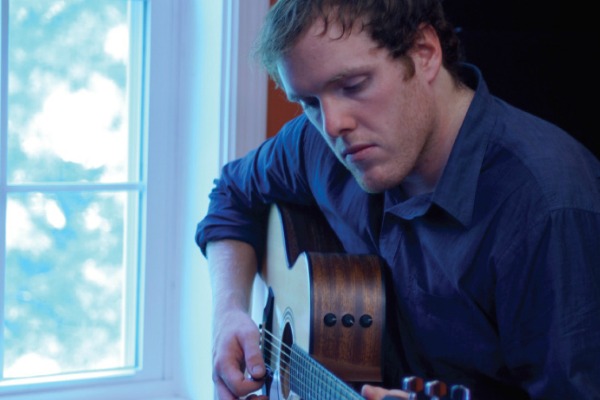
When I begin work on a project, I always try to let the music go where it naturally wants to go. I always begin with abstract ideas of how the form of the piece can take an emotional shape. This ranges from trying to express a thought or idea with lyrics in three minutes to trying to express a poem in 60 minutes of instrumental music. For me, focusing on form — and letting the music conform to the ideas I have about how the overall piece should take shape — is the most important part of the songwriting process.
When I began work on my new album Foxfire, I wanted to create a full-length CD with material that didn’t repeat and was still able to keep the listener engaged. This is the third CD I’ve recorded that follows this compositional method and it is one that requires a lot of patience. It took me about a year and a half to sketch out the form of the music. The hardest part is making sure the music keeps developing and doesn’t stop moving forward. I try to imagine what the music will sound like in the instrumentation I am writing for. Sometimes knowing when to throw out sections is just as important as finding which ideas can be developed and expanded. It’s a very slow process for me. I’m always working on more than one project at once, so when I start to hit a dead end, I just put the music away for a week or two and come back to it when it feels natural to do so.
I usually sketch the music (meaning I either quickly write down on manuscript paper or record onto a tape recorder) and then I arrange it for the instrumentation I had in mind. This is yet another very slow process for me. I try to imagine how I can enhance the ideas through arrangement and it requires a lot of experimentation. I’ve also spent a lot of time trying to learn traditional counterpoint, not so much so I can use it in my music, but so that I can begin to hear different layers in my ideas. Frank Zappa has been a huge influence on me and he learned counterpoint even though he didn’t like it. He said if you don’t like something, you should learn why you don’t like it. He found out when he learned counterpoint that things sounded better to him when he would break all the rules. So when I learned counterpoint; which is when more than 1 melody line is happening in a piece, I spent a long time writing and revising song parts so they sounded right to my ears and I could then transfer them to my music. I incorporated some of those techniques into writing Foxfire.
Another important part of my recording process is making sure that we’re doing it live and that it isn’t over-rehearsed. I try to give the musicians I work with the least amount of information necessary for them to play the music. This gives them the freedom to incorporate their own ideas into the music and although it may not sound like it, there is a lot of improvisation in the music. I like to try to capture the energy the musicians have playing the music for the first time. For Foxfire we only spent two days in the studio, and I feel like the recording is a very good representation of the original ideas I was trying to express in the music.





Comments